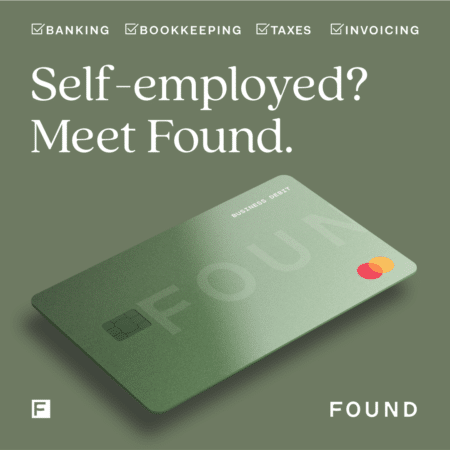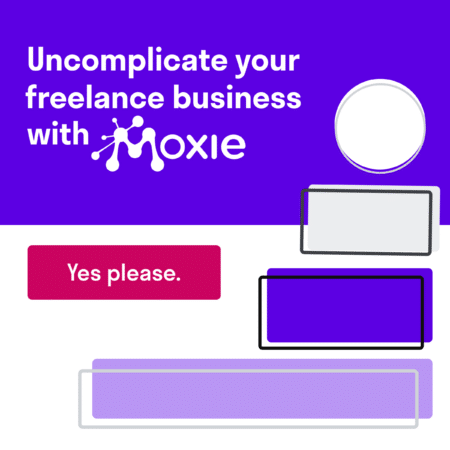Most of us have had to fill out a form at one time or another asking about our “employment.” For most people, this is pretty straightforward. They check the box that says “full-time” or “part-time.” You’re either an employee with full benefits, or you work less than 40 hours/week and receive a prorated salary or an hourly wage, right?
But for those of us in the gig economy, it isn’t quite that straightforward.
You might find yourself with your pencil in hand or cursor on the screen, hovering over the checkbox that says, “self-employed,” and wonder if it’s true…
Believe it or not, if you’re freelancing full time and it’s your primary source of income-you’re probably self-employed.
So what is the difference between being freelance vs. self-employed? Does it even matter?
The way you view yourself (and your business) is about more than just semantics. There are practical, theoretical, legal and mental reasons to fully understand what freelance vs. self-employed really means.
Once you understand the differences, you can better plan for the future, set stronger goals, and create a professional identity that fits into that mold.

5 Main differences in freelance vs self-employed
Freelance is just a catch-all term that means you work for more than one company at any given time. You sell your time and services hourly or per project instead of collecting a monthly salary and filling hours with whatever works needs to be done.
The term “freelance” actually comes from medieval times. A freelance soldier is one who fights for whichever army pays him the most. If you’ve been working as a freelancer for very long, this might seem like an apt comparison.
Self-employed is more of a formal term for someone who works for themselves. Not all definitions agree, so we’ll go with what the IRS says on this one. You are self-employed if you are at least one of three things:
- You carry on a trade or business as a sole proprietor or an independent contractor.
- You are a member of a partnership that carries on a trade or business.
- You are otherwise in business for yourself (including a part-time business)
We’re getting a little bit in the weeds here, so let’s try to simplify that. Someone is self-employed if they make money setting their own hours and rates.
That would include freelancers, right?

The answer is…sometimes.
Freelancers can be self-employed, and someone who is self-employed can be a freelancer, but the two terms don’t mean exactly the same thing. Here are some of the differences in what freelance vs self-employed is describing:
1. Freelancers do work for someone, even if not in a traditional sense.
Freelancers can be self-employed in the sense that they are setting their own rates and hours, but freelancing is, by definition, taking on work from someone else. You sign contracts and accept the terms that various companies offer you.
Someone who is self-employed may own a business that doesn’t have separate client contracts. They sell to customers in more of a consistent way.
2. Freelancers tend to work alone.
Someone who identifies as self-employed is more likely to have a team behind them, building some kind of larger business. This is not a legal definition, but it’s a common differentiator in those who call themselves freelancers vs self-employed.
3. Freelancers may still have a day job.
You can do freelance work on the side of a traditional, salaried position. In fact, many people do this. It’s a great way to increase your income, pursue a passion, or test out if freelancing is a good fit for you in a low-risk way.
Someone who is self-employed, on the other hand, works for themselves, and only themselves.
4. Freelancers often take on multiple jobs at once.
Remember the definition of freelancer I gave you above? The most common type of freelancing is taking on work from multiple companies.

Someone who is self-employed may also work with multiple companies, but they would probably not describe themselves as working for multiple companies. Instead, a self-employed individual would likely have a company that they funnel contracts through (if they are that type of business).
5. Freelancers have clients. Self-employed people have customers.
To me, this is the easiest distinction in whether you are freelance or self-employed. Do you have clients or customers? Clients more often dictate the terms of a contract, while customers will seek out a product or service based on more of a set pricing structure and a company’s reputation.
This is not a legal definition, it’s more of a mindset.
Freelance vs. self-employed: Determining which one fits you
I can practically hear anyone reading this article wanting to ask, “Which is better? Freelance vs. self-employed?”
You aren’t going to like the answer:
It just depends.
There are benefits and drawbacks to each type of work, and which identifier works for you will depend on your goals and situation.
Start by asking yourself some questions:

1. Are you building a career, or just looking to make some extra cash?
You can absolutely build a career as a freelancer. But if your end goal is to conquer a corner of the internet, or become a household name, or expand and ultimately employ other people, you should probably think of yourself more as a self-employed individual.
2. How much work are you willing to take on?
Setting boundaries matters. Again, if you are looking for a long-term career, start that business and take over the world. I believe in you.
But…
If you are a stay-at-home parent trying to keep up your resume without sacrificing time with your kids.
If you are really happy in your day job and want to learn some new skills on the side.
If you have a very successful career, and you want to pick up some consulting work to fund your next vacation.
If for any reason, your time is precious and this whole contracting thing is just filling in some kind of blank?
In these cases (or lots of other cases), calling yourself a freelancer and letting the onus fall more on your clients to set the type and volume of work can help you maintain exactly the kind of small-scale workload you’re looking for.
3. How do you view yourself?
This is probably the single most important question to ask when deciding if you want to be known as freelance vs. self-employed.
In the end, you can really call yourself whatever you want. Which term feels like a good fit? Which do you like? Which feels more professional to you personally? Which term do you think aligns with your goals?
Freelance vs. self-employed is really just an identity, and you get to adopt whichever one makes the most sense to you.
The legal side of freelance vs. self-employed
While there isn’t exactly a legal definition between freelance vs. self-employed, there are some differences in the way you will set up your business.
Depending on where you live and how much income you’re making, you may or may not be required to file for a business license as a freelancer. (Find out how to legally set up a freelance business here)
In some cases, all being a freelancer takes is someone willing to pay you for work, and the tools you need to do the actual work.
If you want to take things a step beyond this, however, you might want to think about registering your business, regardless of the legal requirements.
You’ll have to determine the best structure: should you set up a sole proprietorship or LLC? Self-employed individuals often start out with a sole proprietorship and expand from there.
If you’re a small-time freelance with only a couple of hundred dollars in income, you likely don’t have to worry about many of these legal and business issues. But as you grow into the role of self-employed super boss, you need to think about how to protect yourself from angry clients, natural disasters, and losing out on work because of technicalities.
Self-employed individuals likely need business insurance to protect their assets. Even if you work from home, if you have an LLC, your business property is separate from your personal property and may not be covered by homeowners insurance.
Insurance can also help you win contracts. Some larger companies will only work with contractors who have liability insurance. This totally depends on your industry and the type of clients you want to take on, so do your homework and get the right kind of coverage.
Practically, there’s no difference in the way you file taxes. Freelancers will be “self-employed” on their IRS tax returns. If you have another job in addition to freelancing, you will likely file for both types of employment.
Don’t leave it up to chance—work with a CPA to structure your income and assets in the way that best benefits you.
Conclusion
Freelance vs. self-employed is a nuanced subject with lots of implications.
There’s no quick, bite-sized answer that lets you know which term fits your business style.
Freelancers are serious people, with passions and ambitions and lots and lots of talent. For whatever reason, they may want to fly under the radar a little and keep their business profile low-key. That doesn’t mean they aren’t making serious money.
Self-employed individuals are sometimes in it for the long haul. They’re starting out with what they know, but they fully intended to create something a lot bigger than just themselves pulling in freelance contracts.
Which are you? Freelance or self-employed?
Honestly, you are probably both.
Keep the conversation going...
Over 10,000 of us are having daily conversations over in our free Facebook group and we'd love to see you there. Join us!

